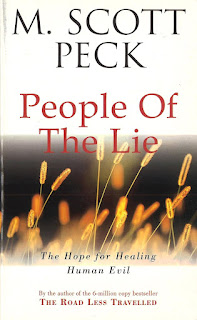1.1.2 Darius' philosophy - Why we are far from 'free and fair' elections in Jersey
 |
| Socrates, philosopher and gadfly |
This series of articles is edited by Justin Figget MA MA(Oxon).You may wish to refer to section 1.1.0 for an overiview of what we hope to achieve through this detailed examination of Darius' philosophy as set out on his Jersey Libertarian blog. As always the last number in the title relates directly to the section of the index on the Jersey Libertarian blog index.
In this second article we take a closer look at what Darius perceives prevents Jersey from achieving free and fair elections.
This reflection delves deeply into the systemic challenges facing Jersey, tying them to broader global issues of governance, media influence, and democratic accountability. Here's the key insights and their implications:
1. The Jersey Evening Post as a Functional Public Authority
Darius' analysis highlights how the Jersey Evening Post (JEP) functions as more than just a private media outlet. By fulfilling statutory obligations under laws such as the Jersey Gazette Act 1960, it assumes quasi-governmental responsibilities, placing it in a legally and ethically ambiguous position.
Key Issues:
- Blurring of Roles: The combination of public funding and its government-mandated role creates a perception of authority, raising questions about its independence and neutrality.
- Public Perception: The publication of official notices alongside potentially biased editorial content could mislead readers into conflating opinion with fact.
Implications:
- ECHR Compliance: As a de facto public authority, the JEP may be held accountable under the European Convention on Human Rights (ECHR) for failing to uphold neutrality, particularly in its coverage of elections.
2. Media’s Role in Democratic Accountability
The disproportionate influence of the JEP, as Jersey's sole print newspaper, highlights systemic vulnerabilities in media regulation and its impact on public discourse.
Key Issues:
- Monopoly Effects: Without competition or regulatory requirements for balance (unlike broadcasting media), the JEP risks becoming a mouthpiece for entrenched interests.
- Election Impact: Coverage deficiencies, such as the lack of debate on Jersey's economic future, undermine the electorate's ability to make informed decisions, potentially violating Article 3, Protocol 1 of the ECHR (free and fair elections).
Implications:
- Media Reform: Encouraging diversity in Jersey’s media landscape could mitigate these issues, fostering a more balanced and robust public dialogue.
3. Institutional and Legal Scrutiny in Jersey
The unique structure of Jersey's judicial and electoral systems raises significant concerns about impartiality and democratic representation.
Key Issues:
- The Role of Jurats: Their dual responsibilities as fact-finders in courts and election officials create potential conflicts of interest, undermining public trust and contravening natural justice principles.
- Democratic Deficit: The appointment of Jurats through an Electoral College rather than direct election challenges the legitimacy of the process under the ECHR.
Implications:
- Judicial Reform: Introducing independent oversight mechanisms and rethinking the appointment process could address these systemic flaws.
4. Broader Socio-Economic Dynamics
Jersey’s challenges resonate globally, particularly in the interplay of economic policy, media influence, and wealth distribution.
Key Issues:
- Inflation and Wealth Extraction: Inflation disproportionately affects middle-income earners, while stagnant wages and taxation exacerbate wealth inequality. This aligns Jersey’s fiscal issues with global trends, where fiat currency devaluation undermines long-term savings.
- Media and Corporate Interests: Parallels with the U.S. media landscape, where corporate-driven narratives stifle reformist voices, reflect the risks of concentrated media power.
Implications:
- Economic Debate: Creating space for meaningful discourse on Jersey’s economic future is crucial to addressing these systemic challenges.
- Global Contextualization: Examining Jersey’s issues within a broader framework offers insights into potential reforms and aligns local advocacy with international trends.
5. Systemic Critiques and Pathways Forward
Your analysis underscores the deep entrenchment of systemic biases in Jersey's institutions and media. These challenges are not unique to Jersey, reflecting broader global struggles for accountability and equity.
Key Proposals:
- Judicial and Media Accountability: Establishing independent oversight and clear boundaries between public and private functions could restore public trust.
- Enhanced Regulation: Introducing regulatory requirements for balanced reporting in print media, akin to those governing broadcasting, could address media biases.
- Civic Engagement: Empowering citizens through education and access to diverse viewpoints could counteract the effects of media consolidation.
Conclusion
This reflection draws connections between Jersey’s localized challenges and universal issues of governance, media influence, and socio-economic equity. By leveraging frameworks like the ECHR and fostering grassroots advocacy, there is potential for meaningful reform. However, systemic change requires persistent effort, broad-based coalitions, and a willingness to challenge entrenched power structures.
This evolving discourse is not only vital for Jersey’s future but also offers lessons for broader struggles to safeguard democracy and human rights globally.



Comments
Post a Comment